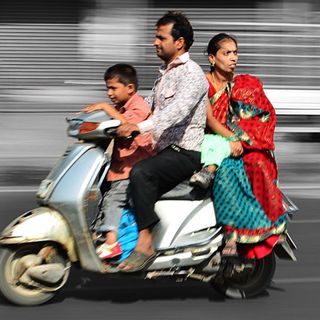An experimental tuberculosis vaccine has proven 50% effective at preventing latent infections from progressing to a harmful, active state in a three-year trial involving 3,500 adults across Kenya, South Africa, and Zambia. Experts are calling the development a “game-changer.”
TB infections exist in one of two states: active and harmful, or latent, which has no symptoms and can’t be transmitted. About 5% to 10% of latent TB infections will eventually become active. Currently, the BCG vaccine is administered to children under age 5 in high-burden countries and offers protection against TB infection for roughly 15 years, but no protection exists for teens and adults.
India has the highest burden of TB of any country, with more than one-quarter of the world’s cases. Last year, 21.5 lakh cases of active TB were reported in the country, according to a government report. The number of people with latent TB infections is unknown but thought to be many more.
“This is the first vaccine that has ever shown protection in previously infected individuals and so offers the potential for protection of vast numbers of people in endemic countries,” Barry Bloom, Ph.D., of Harvard School of Public Health, told New Scientist. Bloom was not involved in the study.
Related on The Swaddle:
From AI to Immunotherapy, Scientists Are Innovating to Eliminate TB
M72/AS01E, developed by drugmakers GlaxoSmithKline and Aeras, is the name of the new vaccine for adults. During the three-year trial, it was administered in two doses to half of the participants, while the other half took placebos, reported New Scientist. All participants had latent TB infections. At the end of the trial, the group who had received the vaccine saw half the number of active TB cases as the placebo group.
The vaccine’s efficacy rate — 50% — is low compared to most vaccines, but it is the biggest preventative advancement to date and could make a big difference in countries like India, where TB is endemic and multi-drug resistant cases are on the rise.
“We cannot eliminate TB globally unless we end it in India,” Jamhoih Tonsing, director of the International Union Against Tuberculosis and Lung Disease’s office in Delhi, told the BBC. “The number of people with TB in India is falling and that is good news. But let’s be honest — TB is still not falling nearly fast enough in India, progress is still too slow to meet the targets. We need to step up the pace of treatment and prevention.”
Larger trials are expected to follow, likely set in other locations where TB is endemic. Experts estimate the soonest the vaccine would be available widespread would be 2028.




